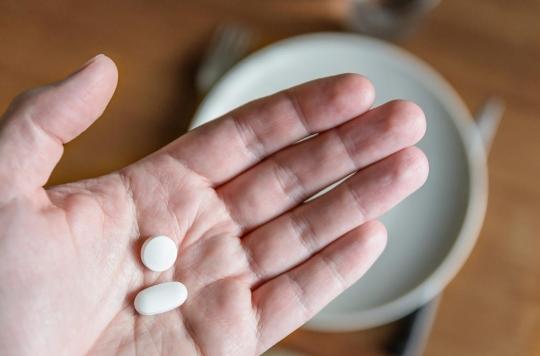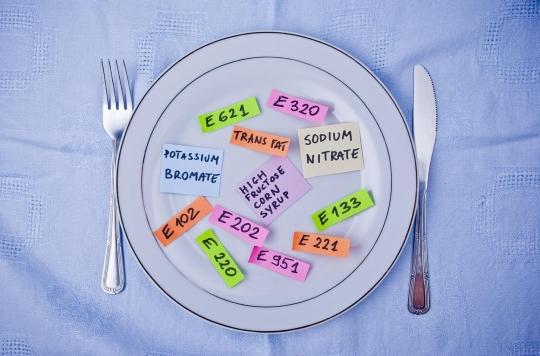Antibiotic consumption has increased by 65% in 15 years. An intolerable situation for infectious disease specialists who, for several years, have been asking themselves a strange question: should we fear a planetary epidemic against which antibiotics will not be able to do anything? The answer is yes, if we continue to distribute these drugs anyhow, both in humans and animals which cause the appearance of “nightmarish bacteria” as the American doctors have dubbed them.

The famous Atlanta Epidemiology Center, the CDC, the world capital for the study of microbes, has documented the appearance of bacteria whose characteristic is to be resistant to most of the known treatments and of course in the first place antibiotics. they are not new microbes but rather very old ones which have succeeded, over the years and unnecessary treatments, in learning to defend themselves against the drugs that man had invented. The illnesses affected by these “killers” remain confined to the hospital and only receive “palliative” care as their doctors say.
France is the 4th European country in terms of antibiotic consumption; which is a poor performance given the efforts made to learn how to consume them less, but which also means that there are countries that are worse than us and that the problem is really international
“If antibiotic resistance continues to progress at this level of intensity, without any other treatment option, there will soon be common infections that we can no longer treat” warned Professor Eric Sonneville on behalf of a group of specialists last November
12,000 deaths per year and 150,000 infections …
Today, we come to an unthinkable situation when these drugs were discovered, which seemed incredibly powerful: humans risk one day dying from infections considered trivial a few years ago, only because a microbe will have become resistant to all available products. This scenario which seemed incredible, is nothing of science fiction, and the continuous increase of cases and deaths by nosocomial infection, these infections that one catches in the hospital while one is hospitalized for any other reason, is there to testify. 12,000 deaths per year and 150,000 infections … The hospital world is a gigantic breeding ground, a backbone of microbes which find there the strength to become devastating agents.
Ultra-resistant microbe
The fight against germs, which we hoped to be over, is far from won. It is even a very unequal fight. A million billions of millions of microbes all over our planet compared to 6.5 billion individuals who believed, seventy years ago, to have won the fight with the discovery of antibiotics.
Hundreds of thousands of tonnes of these drugs have been released into the wild or consumed by humans without reservations or precautions. As a result, the bacteria mutated and became resistant. A microbe is not a frustrated organism, but an infernal machine broken into all-out war. Endowed with a real intelligence which surpasses us a little, considering its size and its simplicity. Each new antibiotic is greeted, a few years later, by the transformation of the microbe which learns to resist it. Our soldiers are slower against new methods of warfare …
Patient pressure
If the fight is lost in advance, we can ask ourselves the question of what are these commercials for – antibiotics are not automatic – which no one has escaped, and which advocate the fight against the excessive prescription of antibiotics? They first had the merit of helping the doctor, for whom the refusal to prescribe remained a delicate moment. Today it is even a little the opposite and the one who gives antibiotics, would almost pass for a nerdy. But with the bad weather, and the return of the ailments of the winter, the requests of the patients remain pressing, in particular in case of tonsillitis. However, paracetamol, associated with aspirin (only in adults) resolves the problem in 80% of cases, since it is an angina caused by viruses on which antibiotics have no effect.
Put pressure on research by pharmaceutical companies
Even if they are expensive for the community, antibiotics are still essential. Above all, research must continue. The laboratories have stopped looking because of the very low selling prices of antibiotics. There is certainly food for thought here. So that the genius of man may continue to have a head start over the genius of the microbe, which is incessantly learning to resist to the point of having rendered some of the oldest drugs totally ineffective. For twenty years, the overall consumption of antibiotics has decreased by 17% and we are also thinking about a new prescription duration: doctors once insisted on a minimum of 7 days but prescribing better and less, isn’t that giving more effective products for a shorter period of time?
At the same time that a little order is put in the medical use of antibiotics, it is also necessary to attack the millions of tons dumped in nature, mainly for the breeding of animals consumed by man. But it is a debate that escapes the world of health …
.

















